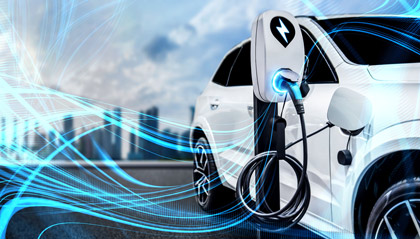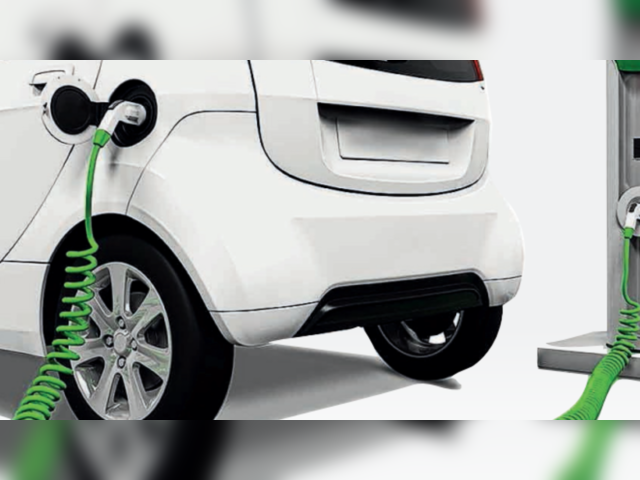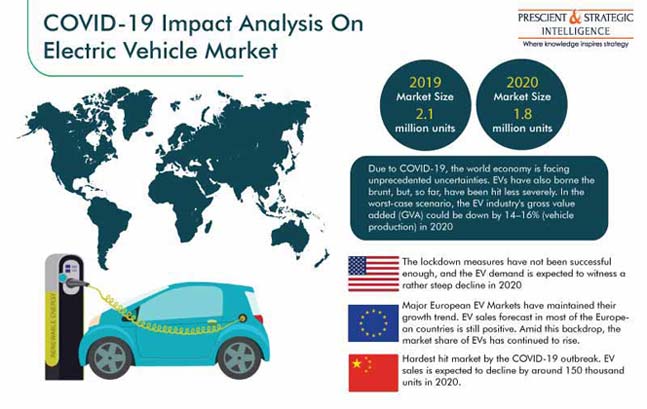As we pull the plug on fossil fuels, the electric vehicle revolution is no longer a distant echo, it’s a roar in our driveways. The exponential growth of this greener vehicle infrastructure is not just ushering in a new era for motorheads, it’s reshaping economies, locally and globally. Let’s pop the hood to better understand how this charge towards electric mobility is sparking transformations across industries, creating jobs, redefining roles, and leading the race for the clean energy future. Brace yourselves, the ripple effects of this EV revolution might just recharge the way you think about your personal transport.
Understanding Electric Vehicles (EVs)

Let’s dive into the nuts and bolts of an electric vehicle (EV). Essentially, EVs utilize a rechargeable battery pack that sends power directly to the electric motor, turning the wheels and taking you on your merry way. They do away with the complexities of a fossil fuel-powered engine, dropping the need for gasoline or diesel. In essence, an EV is the physical embodiment of the saying ‘less is more’.
Comparing EVs to traditional vehicles is like pitting your smartphone against an old rotary dial telephone. Sure, they both make calls, but it’s the smartphone that has GPS, internet access, a camera, and the list goes on. In the same spirit, EVs have shown they can go further, providing a sophistication and efficiency that can be almost startling.
Think of it like this – your standard gas-guzzler has a significant amount of mechanical components (around 2,000 moving parts), while an EV typically has fewer than 20. This reduction adds a newfound level of efficiency and longevity. The benefits? Less time spent on repairs and lower maintenance costs, to name a few.
The EV’s uniqueness doesn’t just lie in reducing moving parts but also in its power. When you press the accelerator of an EV – brace yourself for instant torque. There’s no lag common with internal combustion engines, no waiting for that RPM sweet spot. This is just raw power served immediately, pushing you back into your seat. A thrilling sensation quite unlike anything a conventional vehicle can offer.
Battery technology has always been an Achilles’ heel for EVs, but with every passing year, this is changing. The batteries are improving, getting more efficient, smaller, and cheaper. Moreover, they are lasting longer and can be charged faster than ever. Sufficient juice to cover up to 300 miles or more on a single charge is quickly becoming the norm, making “range anxiety” a hardly remembered anecdote from the early days of electric vehicles.
Charging EV’s is another dimension of simplicity. You can juice up your ride overnight at home with a regular outlet or get a home charging station installed for even quicker filling times. Public charging stations are popping up in more places around cities and along major highways, only simplifying the process further.
No exhaust fumes, relying on rechargeable power instead of finite fuel sources, and a minimalist approach make EVs a cleaner, more efficient option than their combustion-engine counterparts.
The transition to a world where electric vehicles are the norm involves understanding these vehicles and their potential. Not only from an individual car-owner basis but from a societal and economic standpoint as well. With this knowledge in hand, it becomes clearer how EVs are paving the road towards a more sustainable future. It could be argued that the economic boom of EV production and adoption might just be a fantastic side effect of a world striving to reduce its carbon footprint. But that’s a topic for our next section.
How EVs Impact Local Economies

One of the remarkable transformations electric vehicles (EVs) bring to the local economy is in the redistribution of financial resources. To understand this, we first need to recognize that running an EV involves very different economics compared to operating a traditional gasoline or diesel vehicle. Shifting from fuel stations to the electrical grid for power dramatically transforms how and where money is spent.
Firstly, consider the ripple effect in the energy sector. As demand for petroleum products falls, utility firms with capacity in renewable energy see accelerated growth. This shift from an industry concentrated in a few states to a more distributed energy generation model impacts local economies positively. Regions rich in wind, solar, or hydro resources could see an uptick in jobs and investment in the energy sector.
Another boon for local economies is in the maintenance and services sector. Contrary to popular belief, EV maintenance could potentially foster grassroots job creation. While it’s true that EVs, with their fewer moving parts, generally require less ‘standard’ maintenance than their fossil-fueled counterparts, they still need regular attention – battery services, electrical system checks, brake system maintenance, etc. This change prompts the creation of new job categories, re-skilling opportunities, and local businesses catering to these needs.
Moreover, EV manufacturing plants are becoming pivotal assets for local economies. One need only look at the revitalization seen in areas that host major EV manufacturers. They stimulate job creation directly in construction and manufacturing, and indirectly in supporting sectors such as catering, logistics, security, and more. Also worth noting is the positive impact of these “green” jobs on the local property market, as workforce migration boosts demand.
Lastly, let’s talk about how EVs could spur local innovation. The growth of the EV sector fosters an environment conducive to research and development. More and more start-ups are popping up, chasing the next big breakthrough in EV technology. This entrepreneurial spirit is sure to uplift local economies, driving them forwards with fresh ideas, jobs, and wealth creation.
In summary, the shift to electric vehicles ushers us into a new normal – one less dependent on finite, concentrated resources and more balanced in spreading economic benefits. As we embrace this quiet revolution on our roads, we may just rev up our local economies in surprising and significant ways, reframing our economic landscape for the brighter, greener future ahead.
Impact of EVs on Global Economies

As we delve into the global implications of EVs, it’s important to note that changing the primary mode of transportation from fossil-fueled vehicles to electric vehicles is not merely an industrial shift; it has a profound knock-on effect on the global economy.
First and foremost, the significant reduction in oil-based fuels is likely to leave an indelible mark on economies over-reliant on oil production and exports; these nations may need to strategize new economic models to maintain fiscal stability. However, on the brighter side, electrification of the vehicle industry amplifies demand for electricity, offering a surge of growth for the energy sector.
To meet the escalating demand for EVs, an increase in infrastructure development such as charging stations will be essential. This uptick in construction work would create jobs and indirectly stimulate economies. However, these benefits can only be reaped if electricity grids are reinforced and updated, which might be a severe challenge for developing countries with weakened infrastructure.
The manufacturing side also paints a shifting economic picture. Adopting EVs will push forward the demand for batteries, ensuing a mining boom for lithium, cobalt, and nickel—key components required for battery production. Nations with these resources could find themselves in a new kind of gold rush.
However, it’s also important not to ignore the fact that transitioning from combustion engines to electric drivetrains isn’t as simple as swapping one for the other. The manufacturing process for electric vehicles is quite different, and that’s going to mean changes in workforce needs, with some jobs disappearing and new ones emerging. This transformation could also necessitate a shift in global trade relationships, as countries rich in the relevant minerals and capable of manufacturing at scale get a leg up in this burgeoning market.
Overall, the global economic implications of electric vehicles are as electrifying as the vehicles themselves. It’s a mixed bag of potential benefits and challenges, and while this revolution might spark notable economic shifts in the short term, more sustainable and efficient transportation could well mean a better, more well-balanced global economy in the long run.
Future of EVs and Economies

Dusting off the crystal ball, we venture now into the future, examining the prophesied economic implications of Electric Vehicles (EVs) going down the timeline.
The growth trajectory that the EV market has been on is likely set to continue. Forecasts propose that by 2030, nearly half of all new cars will be electric. Although their upfront cost is higher than gas-powered cars, their lifetime cost is lower due to reduced maintenance and refueling costs. This is expected to eventually catalyze an economic principle of ‘demand pull inflation‘ inducing a downward pressure on EV prices, making them more affordable and expanding their accessibility to broader consumer segments.
EVs are also set to be a driving force (no pun intended) behind job growth. Yes, there’ll be a contraction in jobs related to conventional automobiles such as gas stations and auto-repair shops. However, an array of direct and indirect jobs will be created in EV manufacturing, charging station installation and maintenance, electrical grid upgrades, and renewable energy infrastructure. This comprehensive transformation of the auto industry will trigger economic ripple effects that will ultimately result in job creation outweighing job displacement.
On the global stage, energy dynamics are set to revolutionize. Countries heavily focused on oil exports will need to diversify since demand for crude oil will see a decline. This will have significant geopolitical implications with power dynamics shifting to those who control the two key elements of EV production: lithium and electricity. Nations with a stronghold in renewable energy resources or lithium resources could see their bargaining power increased in the global economic playground.
Along with these changes, new opportunities for investments will be created. The rise of EVs will transform the landscape for venture capitalists and investors looking at green tech, cleantech, and mobility startups.
Automation is another facet coming into play. Groups like McKinsey believe that by 2030, 15% of new cars sold could be fully autonomous. EVs form the foundation for this self-driving revolution simply due to their compatibility with the electronic requirements of an autonomous vehicle. This will not only introduce a new wave of opportunity for digital tech enterprises but will also prompt a shift in associated sectors like insurance.
In summary, the EV revolution signifies more than just a shift in vehicle preference. It’s an alteration of economic landscapes, both local and global. With implications stretching across industry sectors and national borders, the ascendancy of EVs equates to the dawn of a new economic era. The pie might seem unfamiliar but rest assured, there’ll be enough slices for different stakeholders who are willing to adapt and innovate.
FAQs
How do electric vehicles impact local economies?
What’s the impact of EVs on the global economy?
Are EVs really more efficient than gasoline vehicles?
Conclusion
In conclusion, the influx of EVs is a pivotal game-changer, triggering ripple effects in both global and local economies. It reaffirms the power of innovation to disrupt existing industries, create new markets, and drive sustainable growth. However, much like any seismic technological shift, it presents uncertainties and transition challenges that need cautious navigation. But with the right mix of supportive policies, investment in infrastructure and open dialogue, EVs can steer economies toward a greener, more resilient future.
